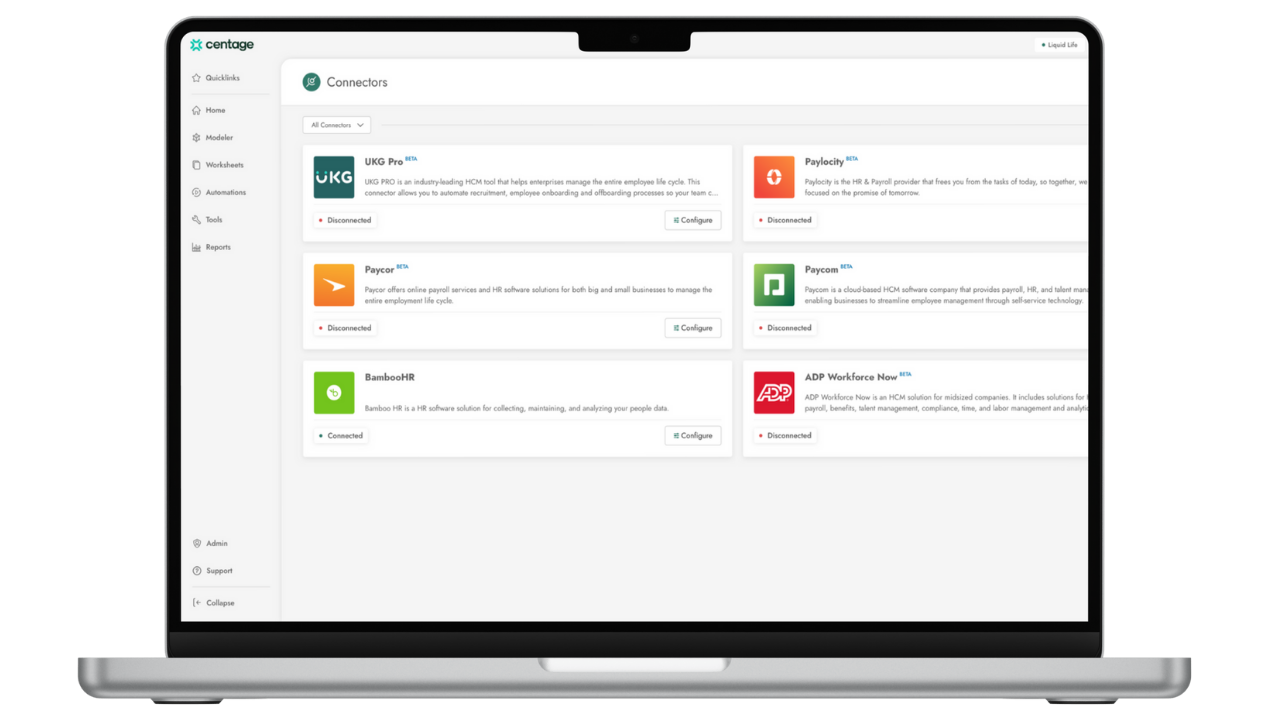Business Logic and Accounting Rules Built into the Budget
How the budget output and forecasted financial statements rely on both business logic & accounting rules
If you’ve spent more than a few years preparing and presenting annual budgets, and perhaps participated in the periodic reviews and updates (re-forecasts) of these budgets you have certainly come to the realization that the budget outputs (e.g. forecasted financial statements and other reports) must be a result of your implemented model and a consolidation of inputs from several budget participants, such as departments or cost centers, and some business logic built into this whole thing that takes into consideration the use of drivers, prior actual results and many more factors that contribute to what the budget is going to look like.
Challenges with Spreadsheet-Based Budgeting
If your company uses spreadsheets to prepare its annual budget and do its re-forecasting work, you appreciate how much work went into the setup of these spreadsheets, the enormous complexity of the formulas, functions and links used, and the tedious maintenance required to keep the model up-to-date and relatively free from material errors, which is all you can usually hope for.
Moving to Dedicated Software Solutions
If your company has upgraded the process to a dedicated software solution for corporate budgeting, modeling and analytics, then many of the formulas and accounting rules used in the spreadsheet version must be programmed into this budgeting software and periodically reviewed and updated as the model changes. Many additional links and other application-specific programming must also be performed before you can actually use the application. This is not much different than using spreadsheets.
Limitations of Current Approaches
Neither of the above two approaches is ideal, because of the complexity of the model setup and the continual maintenance required to keep the plan and model functioning correctly and delivering the desired results. Neither approach can ever deliver complete and accurate financial statements (with the exception of a forecasted income statement), due to their inherent limitations, the most obvious of which is not having a built-in general ledger (a G/L that operates like the actual accounting software or ERP G/L). After a great deal of programming, you may be able to obtain a balance sheet and statement of cash flows, but these will be approximate and incomplete, at best. Many forego these statements altogether.
Incorporating Business Logic Into Your Budgeting Solution
To make a budget useful, you need to incorporate some business logic into it. This is where the myriad of formulas and links among the many spreadsheets come into play. They must represent the particular conditions that drive your business, and the many nuances unique to each of its operations. You can’t just use a generic spreadsheet model or any of the various dedicated budgeting software solutions, right out of the box, and hope to be able to deliver a meaningful and useful annual budget. Much preparation, and often expensive consulting and internal labor, must be employed first.
What you really need is a dedicated software solution that has business logic already built into it, a menu-driven environment with drop-down lists and tables that you select from within each budget area, for each budget line item, either globally or individually, plus the ability to select unique defaults, drivers and other logic. The end result is a modular budget (revenue, expenses, assets, liabilities, etc.) with input from all business units.
Budgeting Solutions With Accounting Rules
You also need the system to have accounting rules built in. This will ensure that every budget line will cause the values representing G/L account balances (ideally identical to your actual accounting G/L accounts) to update in every budget period, and then contribute to the generation of the forecasted financial statements and other operational reports.
Unfortunately, using the spreadsheet approach and most of the dedicated planning, budgeting and analysis software solutions, due to their inherent design, no accounting rules can reasonably be established, thus the lack of ability to create a reliable balance sheet and its companion statement of cash flows. It seems that the more work and money you invest in these approaches, the less productive you become, and the more ambiguous some of the results.
Business Logic & Accounting Rules Aren’t Nice To Have, They’re Necessary!
In summary, built-in business logic is needed to allow building the plan or model which becomes the budget. Built-in accounting rules are needed to allow the system to automatically use the budget to generate forecasted financial statements and other reports, always synchronized to the plan and budget itself, and behaving like an actual accounting system.
Think of this as financial statements generated from accounting events that have not yet occurred, but are projected to occur based on the budget. As the budget is updated, so are these projected accounting events. The system automatically makes sure, using its built-in accounting rules, that the financial statements are delivered in the same format and fashion as their actual accounting system counterparts.
I think this is a brilliant approach, and expect more software applications to adopt these principles in the near future.
Keep reading...
Interviews, tips, guides, industry best practices, and news.


